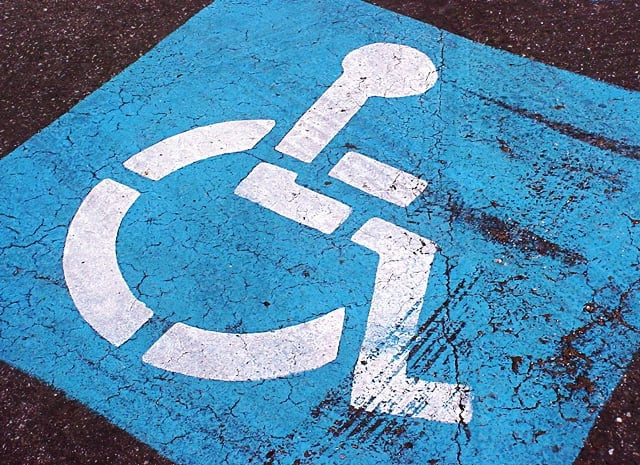It was just another day at work. I was enjoying my coffee and looking out of my office window at the magnificent headquarters of a renowned commercial bank close by. Admiring the architectural beauty of the building, I suddenly stopped when my eyes caught sight of a heart-wrenching sight.
A man had just come out of the main door of the bank on a wheelchair and was looking extremely distressed. On closer inspection, I realized that the gentleman was wondering how to get off the beautiful platform which sprawled across the bank’s front. The platform had a grand staircase, however, it didn't have even a single slope which could allow a wheelchair to slide down easily. Thus, the man waited there helplessly for more than ten minutes. He stared anxiously, looking at the people passing by. At length, two gentlemen realized his plight and lifted his wheel chair over the steps. I let out a sigh and was almost as relieved as the stranded man.
Stairs - it's something I have taken for granted before today.
How easily we just fly over them, no problem at all. It isn't the same for everyone. I realized that a single slope on that platform meant a whole world to the disabled man. Just like that, all of a sudden, the magnificence of the architecture that captivated my attention suddenly vanished - it felt so petty, so ruthless.
Yes, ruthless it was, and so are we as a society. This incident made me wonder, why is it that there are no facilities for disabled children to attend regular schools? We segregate these children and make them attend 'special' institutions. In doing so, we strip them of their confidence at an early age. In addition to this, there aren't many educational institutes that cater to these children to begin with. Why do we deny them basic education rights?
Moreover, very few of us have probably noticed that our transport system does not support or help disabled people.
Why?
Are they any less worthy than us?
Similarly, most shopping malls, markets and so on do not accommodate people with disabilities. Why have we marginalized these people? Are they any less deserving than us?
It is often noticed that we do not forget to build a small slope for our cycles and motorcycles, but we fail to register that just widening these a few inches would mean a lot to someone in a wheelchair.
People with disabilities are rapidly increasing across the globe owing to ongoing wars, terrorist activities, birth defects, ever increasing accidents, and so on. Across all 59 countries the average prevalence rate of disabilities in the adult population aged 18 years and over, derived from the World Health Survey, was 15.6% (some 650 million people of the estimated 4.2 billion adults aged 18 and older in 2004). This ranged from 11.8% in higher income countries to 18 % in lower income countries.
We might have legs to stand on today, but who can same that this condition will always be true? The man on the wheelchair in front of the bank could easily have been me.
Just for a moment imagine that you are the victim of an accident and unfortunately become wheelchair-bound for a week. With this perspective, analyse your home and systematically look around you just to gauge the possible repercussions even with a temporary disability. A dismal and shocking lifestyle prospect isn't it?
December 3 is observed as the International Disability Day. The day aims to promote better understanding of disability issues with a focus on the rights of the disabled. Disability is a complex phenomenon, reflecting the interaction between features of a person’s body and features of the society in which he or she lives.
Think about it - so many people in Pakistan alone are suffering because we are unable to provide them with adequate facilities.
I am convinced that I need to make aggressive efforts to change things around me; I hope that you are too.
A wheelchair shouldn't be a curse
The man sat in his wheelchair, anxiously gazing around him for some way to climb down the stairs...



COMMENTS
Comments are moderated and generally will be posted if they are on-topic and not abusive.
For more information, please see our Comments FAQ